Figures
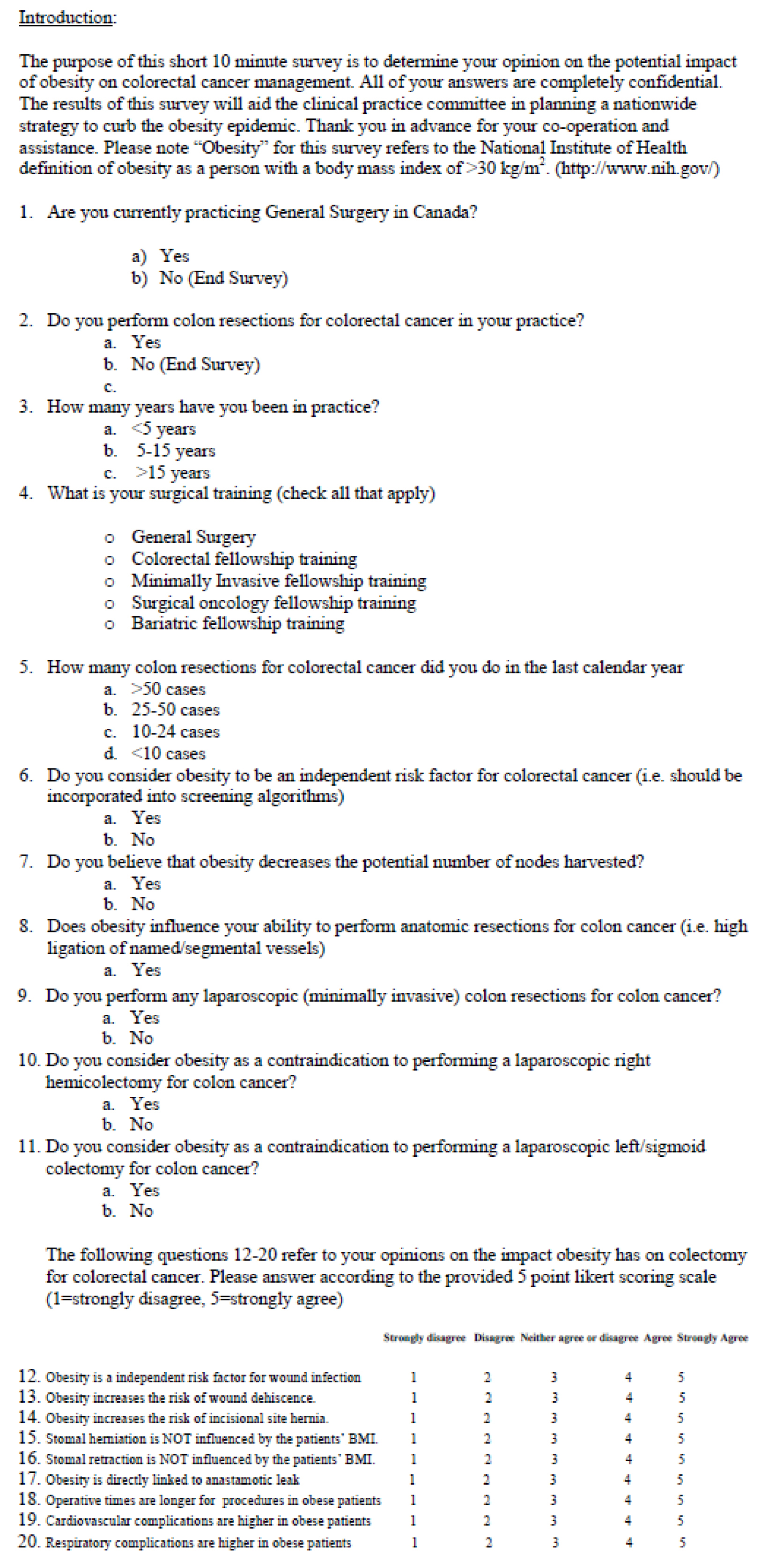
Figure 1. Questionnaire.
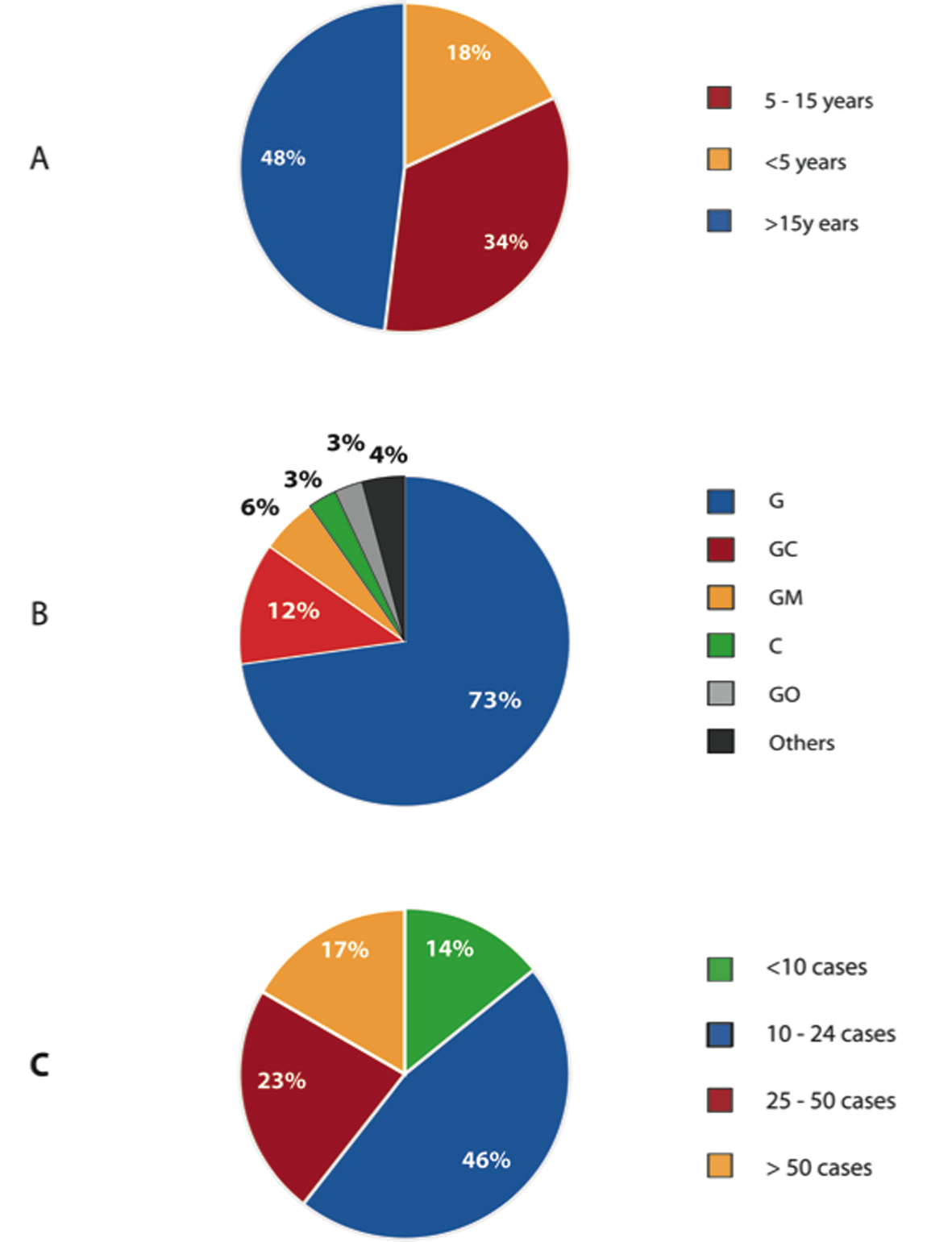
Figure 2. Demographics of Canadian Surgeons. (A) Number of years in practice. (B) Level of training of Canadian Surgeons. (C) Number of colorectal resections performed last year in their practice.
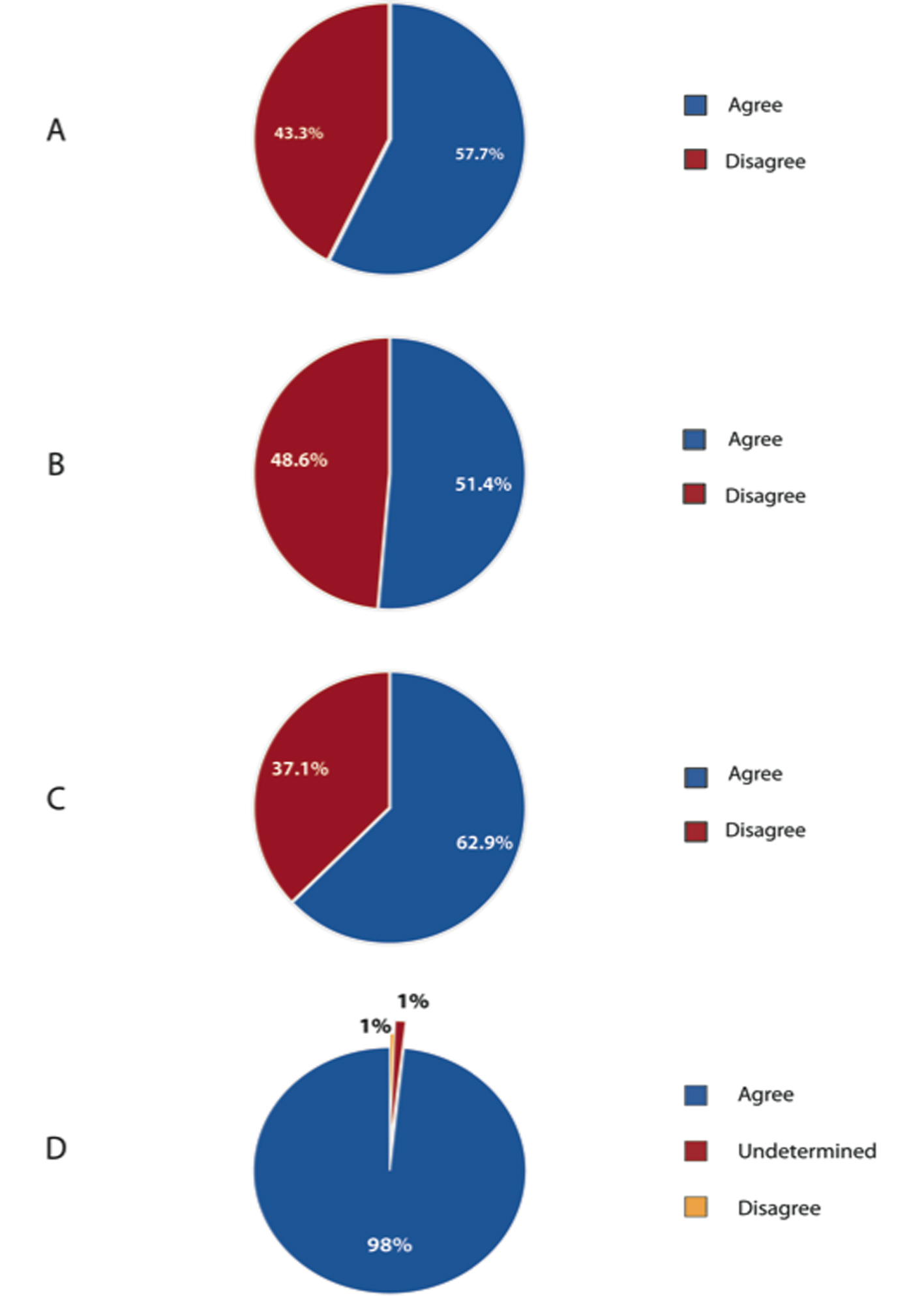
Figure 3. Perception of the effect of obesity and colorectal cancer and colorectal resection. (A) Obesity as a risk factor for colorectal cancer. (B) Effect of obesity on number of lymph nodes harvested. (C) Effect of obesity on performing anatomical resection. (D) Effect of obesity on length of procedure.
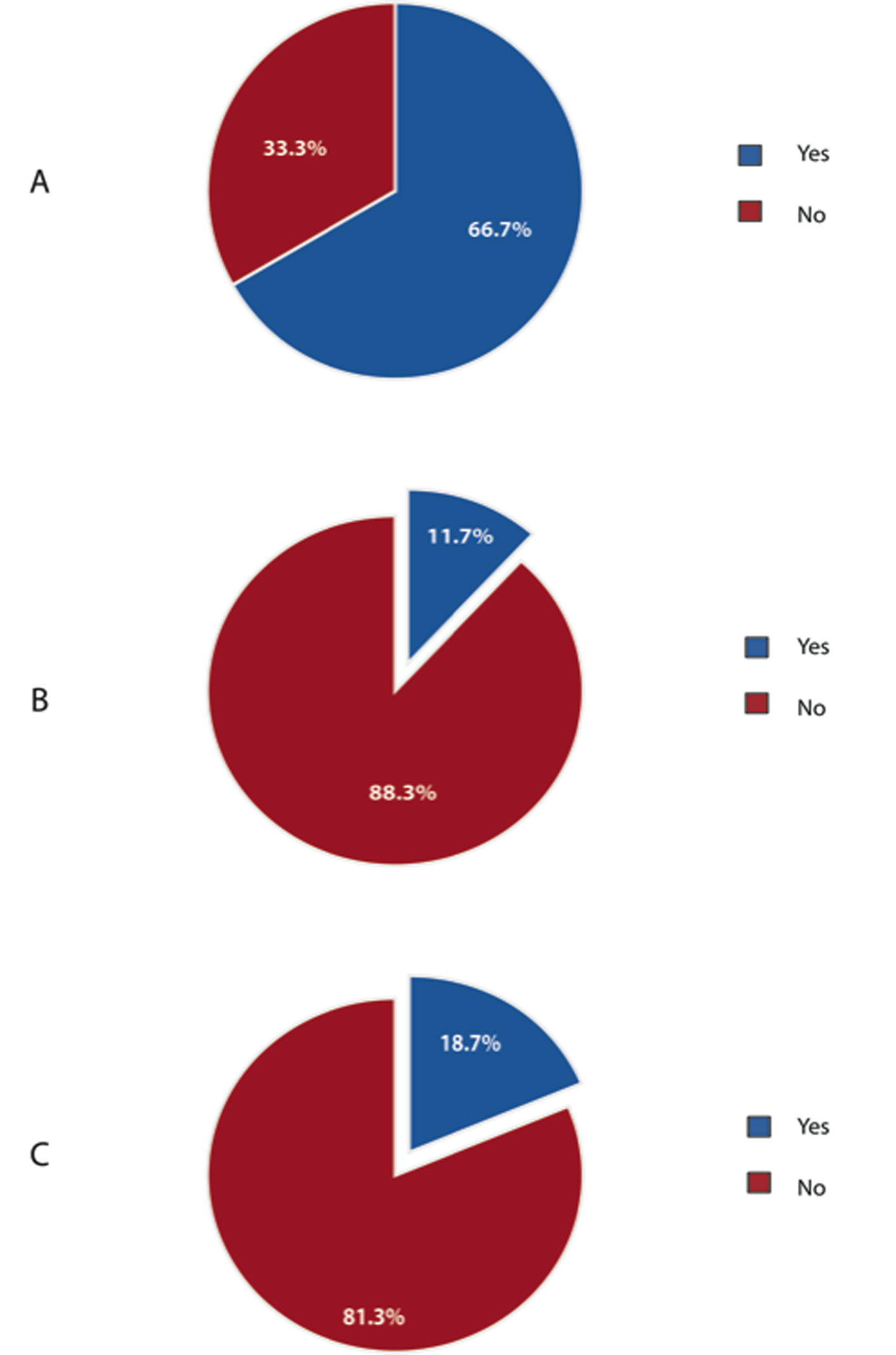
Figure 4. Laparoscopic colorectal resections. (A) Percentage of Canadian surgeons performing laparoscopic colorectal resections. (B) Obesity as a contraindication for laparoscopic right hemicolectomy for cancer. (C) Obesity as a contraindication for laparoscopic left hemicolectomy for cancer.
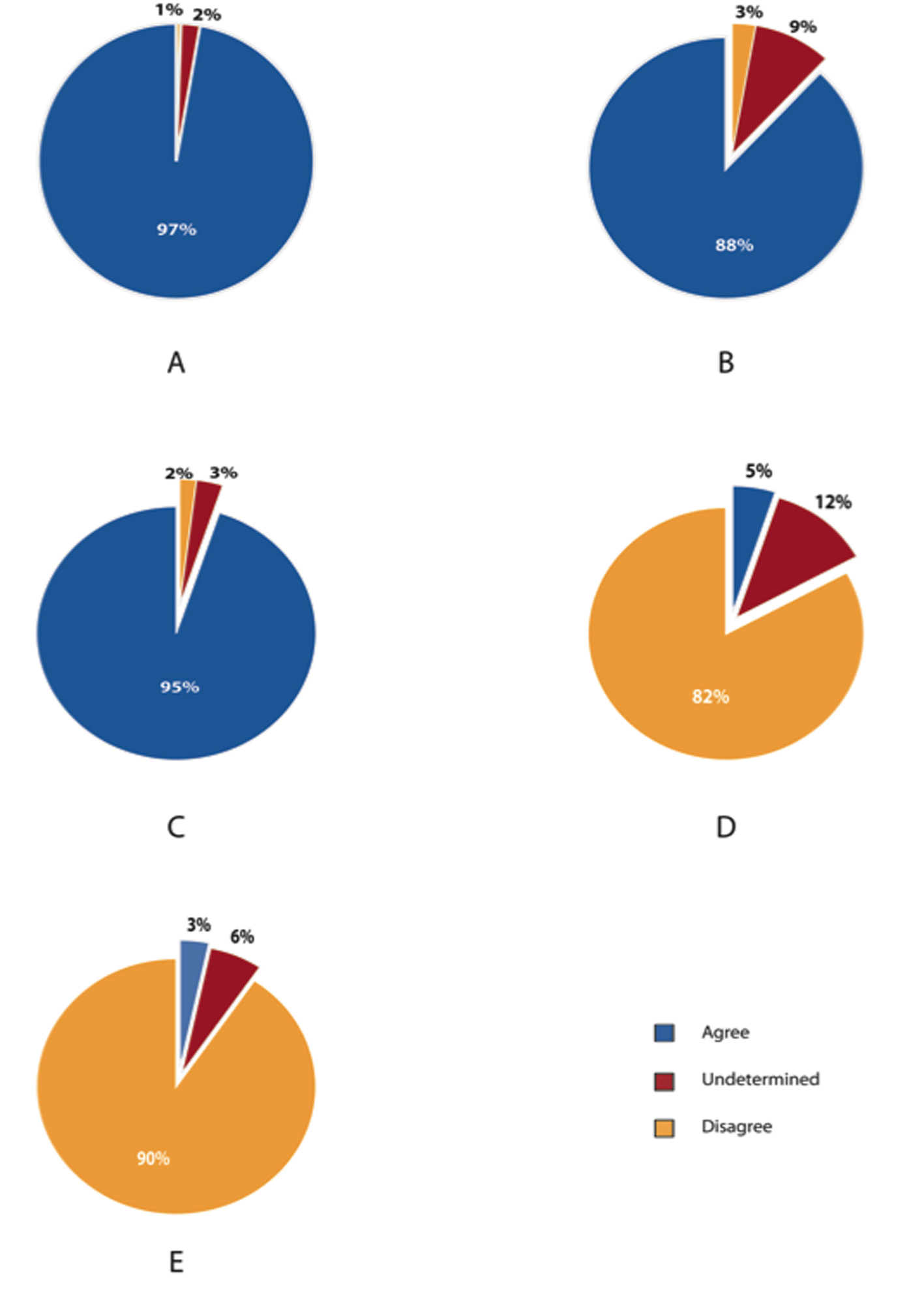
Figure 5. Postoperative wound and stomal complications related to obesity. (A) Obesity as an independent risk factor for wound infection. Obesity increases risk for (B) wound dehiscence (C) incision site hernia. (D) Stomal herniation is not influenced by patients BMI. (E) Stomal retraction is not influenced by patients BMI.
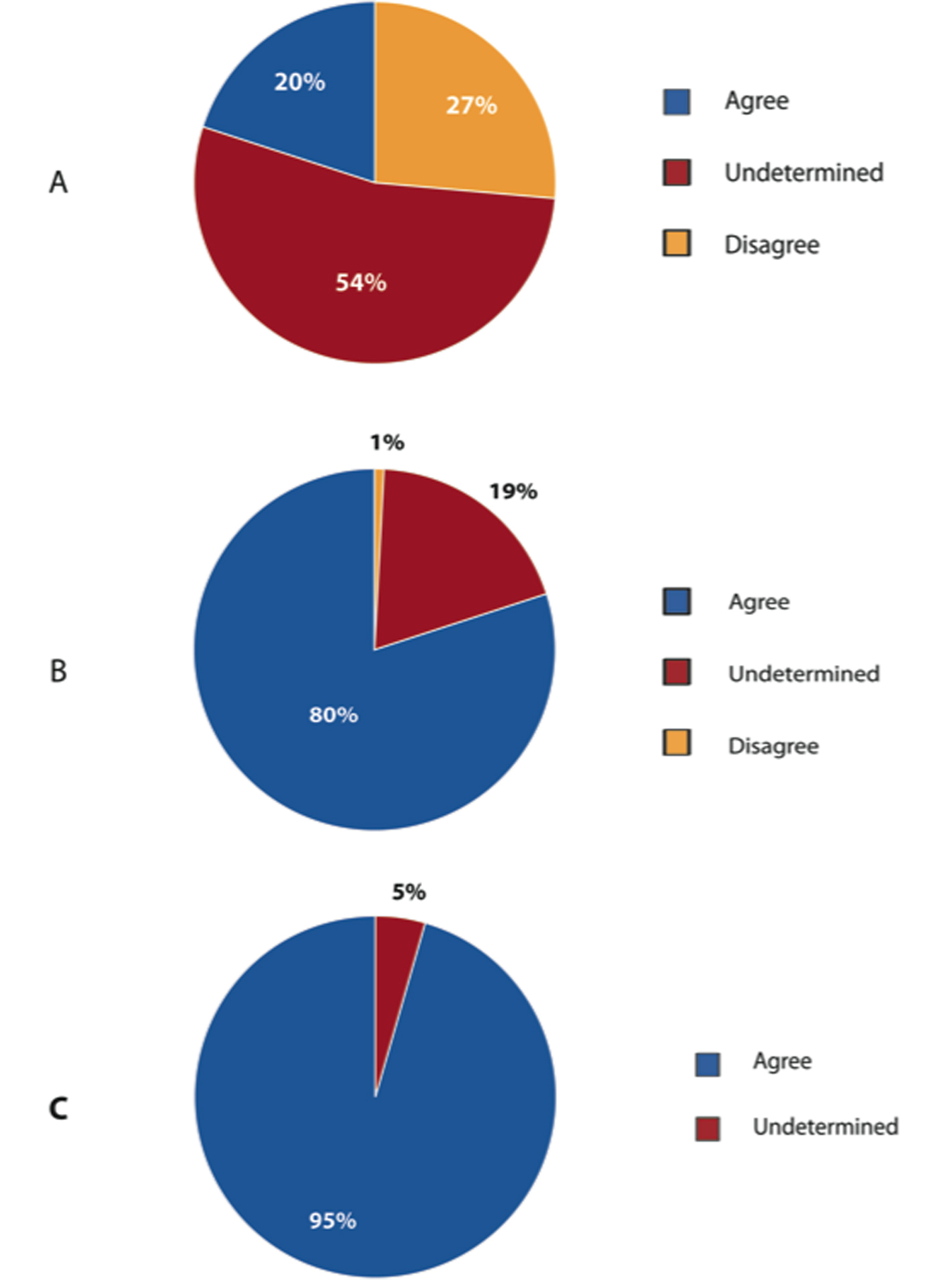
Figure 6. Major postoperative complications related to obesity. (A) Obesity directly linked to anastomotic leak. (B) Cardiovascular complications are higher in obese patients. (C) Respiratory complications are higher in obese patients.






